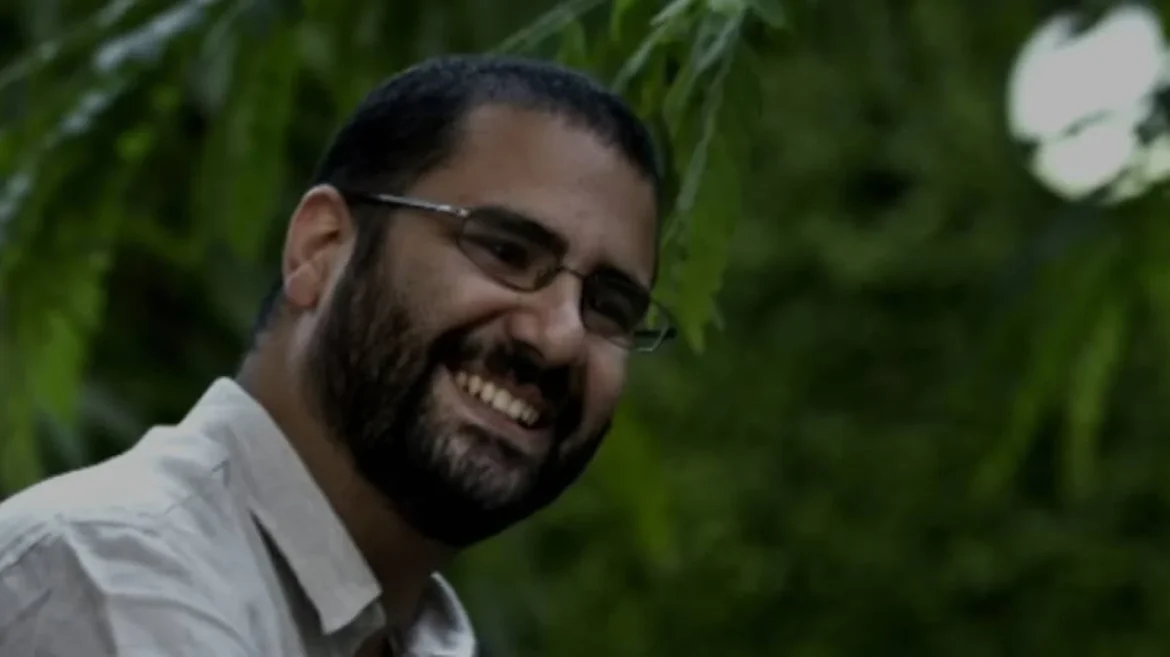The situation of British-Egyptian activist and writer Alaa Abd el-Fattah, who is still imprisoned in Egypt under circumstances lately declared illegal by the United Nations, is attracting growing global attention. After a thorough inquiry by a UN panel found that Alaa Abd el-Fattah’s arrest and ongoing detention violate international legal norms, demand for his immediate release gathered steam. His case has come to represent more general issues with political freedom, the rule of law, and the denial of civil liberties in Egypt.
Table of Contents
ToggleWhat came of the United Nations?
Following an eighteen-month investigation, the UN Working Group on Arbitrary Detention decided Abd el-Fattah’s detention was illegal and arbitrary. The panel discovered he had been arrested without a valid warrant, denied access to a fair trial, and not promptly or transparently told of the charges against him. Based on charges stemming from a single Facebook post about a death in custody, his five-year prison sentence, delivered in December 2021, was based on claims that he had disseminated false information and harmed national interests.
The UN’s report underlined that these acts lie within the limits of peaceful expression and cannot support criminal punishment. The panel said that using ambiguous legal language like “spreading false news” goes against international standards about freedom of expression. It said that Alaa Abd el-Fattah’s quick release, together with suitable compensation and reparations for the damage done, is the correct cure for this moral and legal lapse.
Why Should This Case Matter Outside of Egypt?
Egypt has a domestic problem here, not only one related to itself. Alaa Abd el-Fattah’s detention sends a concerning message to the world community on the degradation of human rights in a nation that is a major regional actor. A nation questions the worldwide consensus on civil liberties, democratic government, and responsibility when it locks one of its most well-known voices for peaceful activism.
Violating these standards has consequences not limited to national boundaries in the linked world of today. Alaa Abd el-Fattah’s immediate release is under more and more emphasis by governments, human rights organizations, and people themselves as both a legal need and a moral one. In such circumstances, silence or inaction compromises the legitimacy of global pledges to human rights.
How has the UK reacted to UN findings?
Formally, the United Kingdom has addressed the matter. Publicly urging Egyptian President Abdel Fattah al-Sisi to show compassion and take into account the suffering his family is experiencing, the Prime Minister of the UK has now sent a direct appeal twice for the release of the imprisoned activist. His case is particularly relevant in the UK not only because of his British citizenship but also because of the continuous protest his mother, Laila Soueif, is doing.
Living in the UK, Soueif started a hunger strike that now spans 240 days. Her health has drastically dropped; she has lost half her body weight, yet she keeps daily one-hour vigils outside Downing Street. Her protest reminds us poignantly of the human cost associated with political decisions and legal inaction. Alaa Abd el-Fattah’s suffering and resiliency mirror her urgency for quick release. Read another article on the UK Illegal Immigration Crackdown
What more general ethical and legal ramifications that follow?
The report of the UN panel exposed systematic issues in Egypt’s legal and penal systems, not only pointing up defects in one case. The practice known as “rotation sentencing,” whereby authorities constantly file fresh charges to prevent a prisoner’s release even after pretrial terms run out, especially worries me. The UN report claims that if used to silence critics indefinitely, this strategy could qualify as a crime against humanity.
Alaa Abd el-Fattah’s detention’s legal justification has been sharply denounced as nebulous and unduly broad. Authoritarian governments sometimes use phrases like “damaging national interest” to stifle criticism. The UN made it abundantly evident that such policies have to be dropped if we are to match contemporary human rights norms. The results of the panel expose not only the arrest but also a critique of a justice system that seems more oriented on control than fairness.
Egypt runs further diplomatic isolation and loses credibility on the international scene by keeping Abd el-Fattah under custody. The demand for Alaa Abd el-Fattah’s immediate release is about restoring the credibility of legal institutions and creating a precedent for how dissent is handled in the twenty-first century, not only about righting an individual injustice.
How Might His Release Be Made Possible?
Although the UN has decided, government, corporate, and citizen pressure will be constant in order to enforce. While Egypt is not legally obligated to act on the UN’s recommendations, its credibility as a member of the international community could be severely damaged by continued inaction. Human rights groups are now urging diplomatic missions to engage more assertively, including raising the case at global forums and possibly seeking legal recourse through the International Court of Justice.
Efforts in these areas depend much on public advocacy. Momentum can be sustained by raising knowledge via media, civil society campaigns, and first-hand narratives. Every voice added to the cause raises the possibility that Alaa Abd el-Fattah’s immediate release would turn from a demand into reality. Silence is no more a choice; the world is watching.
Finally: Why Time Is Running Out
Alaa Abd el-Fattah’s case now transcends mere legal concern to become a human rights litmus test for the world community. The UN has spoken unequivocally. The law is unambiguous. The right moral road is clear-cut. It is inexcusable to keep a peaceful activist under custody against international norms.
Demand for Alaa Abd el-Fattah’s immediate release goes beyond only guaranteeing freedom for one man. It is about confirming that justice still counts. It is about demonstrating that the world community will not let repression go unpunished. The Egyptian government has to act; international leaders should follow through; and the world should stick to defending human rights.


